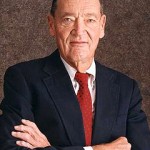
The PBS documentary, “The Retirement Gamble,” which aired April 23, 2012 on PBS, has shaken up the 401(k) and mutual fund industries.
Since these industries dislike any form of criticism, they have responded mostly by being silent. In a few rare cases, such as a blog post by Vanguard, the criticism centers on what the documentary did not show, or failed to show in depth. But given the one-hour time limit, these criticisms can be understood, but they also seem to be distractions from the main message: millions of Americans do not feel financially comfortable with their 401(k) investments as they approach retirement.
Some criticism from industry professionals which I have seen on LinkedIn are very rule-related and technical and are based on plan administration or industry specifics. Apparently, many critics who are recordkeepers and 401(k) educators take the position that they are either DOL and ERISA technocrats or amateur ERISA lawyers.
Other critics have taken the popular position of blaming 401(k) participants for not saving enough, but this criticism belies the fact that most of the 401(k) educators are paid by employers (plan sponsors) who presumably do not want any discussions about wage increases discussed in their educational meetings. This is especially true if employees have not received raises.
But blaming employees for not saving enough, or commonly not being able to understand the basics of investment retirement planning, is like blaming students for not learning. The difference is that in a public education system, blaming students for not learning is bad educational policy. If students do not learn, professional educators re-examine the curriculum and then look at other environmental factors which serve as educational roadblocks. But apparently this approach is not used in 401(k) education.
Other critics of the documentary question PBS’ motives. They say that “bad news sells” (which is odd since PBS is a non-commercial network) or that PBS had “an agenda.” This agenda is never specified, but may be it is the opposite of the Republican proposal to privatize Social Security and thus lock-in an even high levels of fees for millions of Americans. Another criticism is that much of the interviews ended up “on the cutting room floor,” that is to say, the interviews were intentionally distorted or taken out of context. But to date, no one has said they were misquoted.
Admit It: The Industry Has Problems
But given these criticisms, few critics have refuted the documentary’s most important, main points: high fees seriously hurt returns, conflicts-of-interest related to the lack of a fiduciary standard poison client-adviser relationships, passive investing beats active investing, or John Bogle’s take on problems in the retirement planning industry and why high fees hurt investors over time.

As a result, here are why the documentary is important. These points should be used by RIAs to make their case about why they have a better business model for investors. Or, for individuals, here are some key points to ask your plan administrator about your 401(k) plan.
Why the PBS Frontline Segment is Important:
–It highlights a critical problem that affects 90 million Americans who invest in the $13 trillion mutual fund industry.
–It highlights three problems which are widespread, but not often publicly discussed: the impact of high mutual fund and 401(k) fees; the conflicts-of-interest that prevail in the financial industry sales and advice industry; and wealth destruction.
–It presents the problem facing millions of Americans who face a financially insecure retirement future
–It addresses how millions of unprepared investors are now engaged in a do-it-yourself retirement planning process.
–It shows how employers have transferred all retirement planning and investment risks, and most of the costs, to their employees.
–It indirectly shows the new diminished loyalty which now exists between employers and employees.
–The historic DOL fee disclosure regulations (enacted in spring 2012) that for the first time informed 401(k) investors about what they were paying in fees and other costs. These regulations were opposed by the financial services and 401(k) industries since they were first proposed in 2007.
–The year 2012 marks the first time more people are relying on 401(k)s and not pensions for some retirement income.










